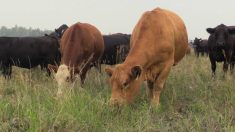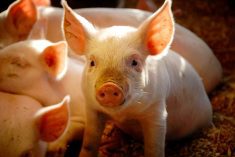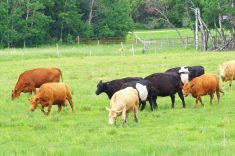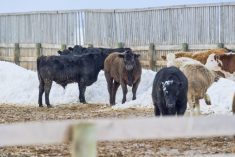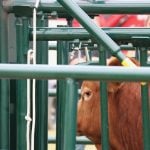After three years of Manitoba hog barns being free of Transmissible Gastroenteritis (TGE), the uncommon disease tested positive in a sow and nursery operation in southern Manitoba last May.
“It was rather surprising, but good that it did not cause as much trouble as it could have. When it tends to hit it usually is pretty bad, but in this case it wasn’t, and we are pretty happy about that,” MAFRI veterinarian Dr. Glen Duizer told the Manitoba Swine Seminar Feb. 2.
Duizer did not say exactly how many pigs were infected, as he feared that would directly identify the operation which contracted TGE. But he said one week’s worth of production was lost.
Read Also
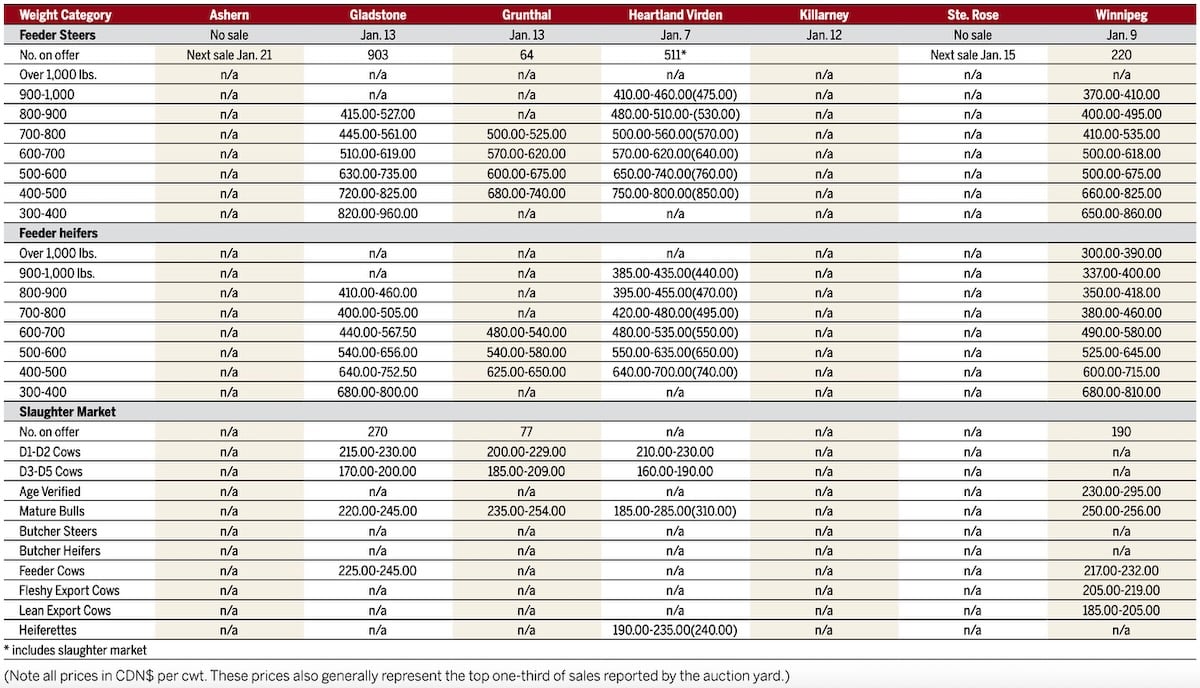
Manitoba cattle prices, Jan. 15
He said that the sow barn and nursery that were infected were under an ownership group which owned another sow barn and a finishing facility within another production system. All four sites were in a 10-km range of each other.
Duizer said this outbreak was considered atypical due to the time of year the infection occurred, the fact that there was not a severe rapid spread in the production pyramid, and that the infection did not have severe clinical signs or mortality.
TGE typically becomes present in cooler weather, fall or early winter. This outbreak occurred in May. The infection did not spread severely throughout this production system. Only two pigs of the five barns at the finisher sites under the same ownership tested positive for TGE.
TGE is a provincially reported disease.
Duizer credits both the owners and staff at the farm and MAFRI for why this case did not lead to a more severe outbreak. Owners and staff implemented heavy biosecurity measures that helped contain the spread.
The biosecurity measures Duizer described in his presentation included: daily washing and disinfecting of all hallways and high-traffic areas and equipment, dedicated staff to specific areas of the barns and immediate implementation of animal restricted movement measures both in and off site.
As well, they started a control and eradicate program the same day they got the positive TGE test results back.
MAFRI was responsible for notifying at-risk farms and producers about this infection, and implemented the Premise Identification and Immediate Notification process, which allows producers in the immediate infected area to know that there is something serious that they should be concerned about.
“We notified producers near the infected premise that they should be concerned about this particular disease. We notified producers and their veterinarians that have linked herds, and there was a general notification that went out to the industry and all swine veterinarians in the province,” he said.
TGE is an acute rapidly spreading viral disease affecting swine of all ages. The first symptoms of TGE are vomiting and diarrhea. TGE results in high mortality in piglets less than two weeks. As in this case, early testing and precautions were able to keep TGE confined to this one production system.
———
“Whenittendstohititusuallyispretty bad,butinthiscaseitwasn’t,andwe areprettyhappyaboutthat.”
– Dr. Glen Duizer





